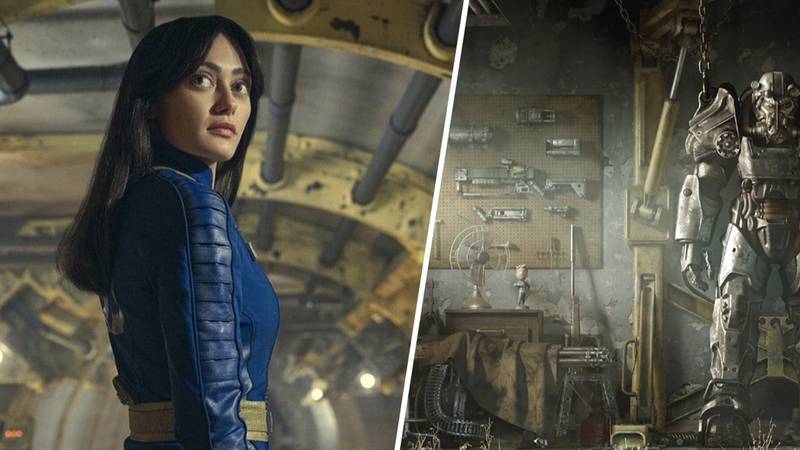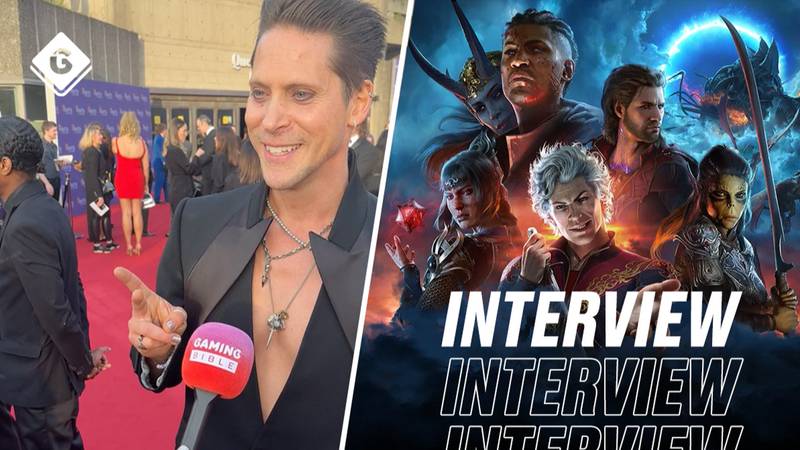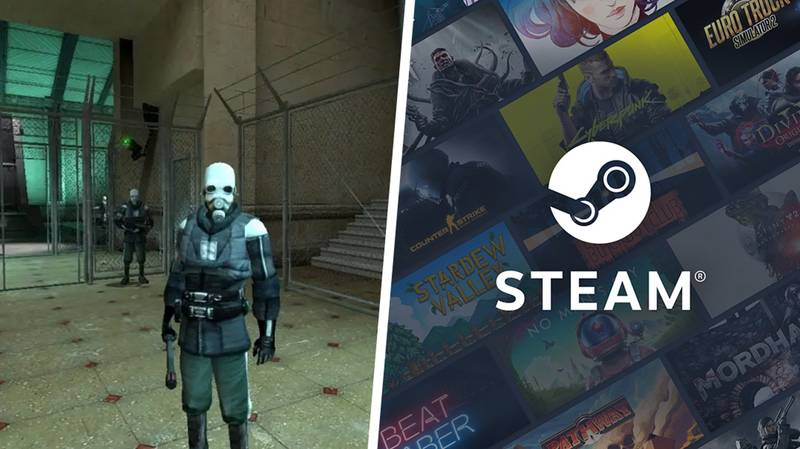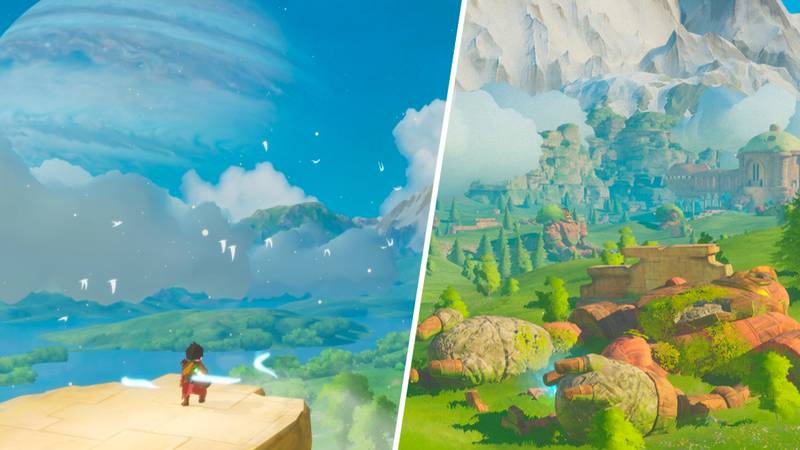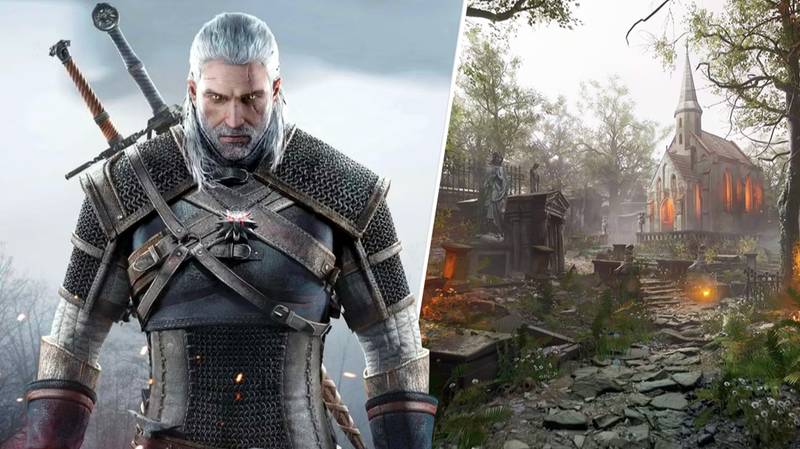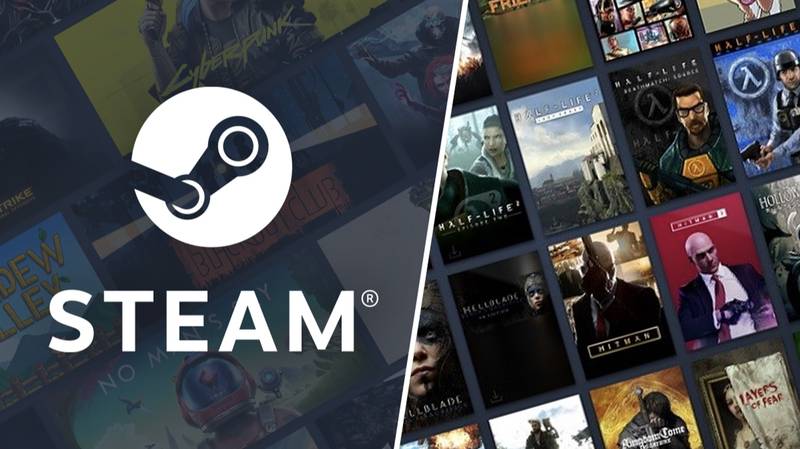'Die Hard Trilogy' Was A Brutal, Ambitious Classic That Never Should've Worked
Published
| Last updated
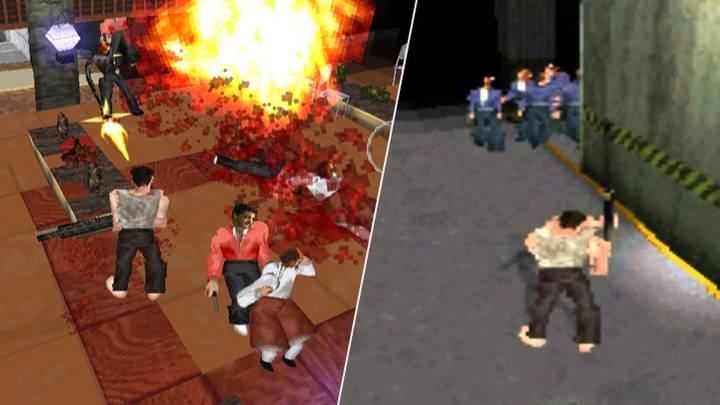
Featured Image Credit: EA/Fox Interactive
If you think developing a video game that ties in with one movie is hard work, imagine how much of a nightmare it must have been to work on a game that crammed three movies into one package. Released long ago, in a forgotten age (otherwise known as 1996), Die Hard Trilogy was a truly unique and ambitious piece of work.
Developed by the UK-based Acclaim Studios under the supervision of Fox Interactive, Die Hard Trilogy was quite unlike anything we'd ever seen at the time. Games based on movies were nothing new of course, but here was a game that aimed to tell the story of the first three movies in the Die Hard franchise, with each movie being represented by a completely style of gameplay.
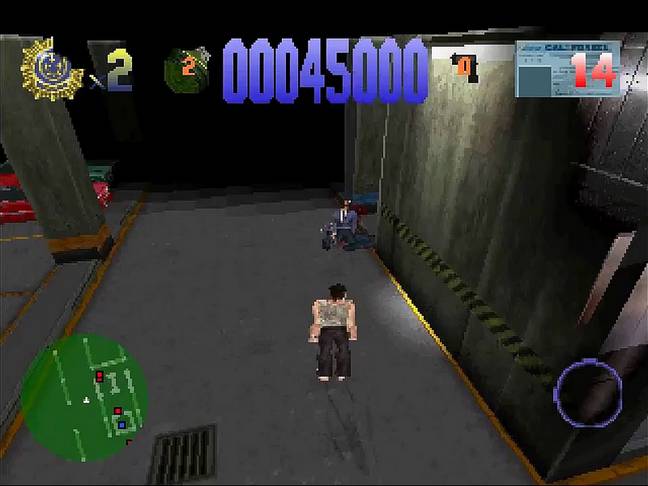
It was, essentially, three completely separate games in one. The end result was a title that was incredible well-received by fans at the time... but the slightly janky, rough-around-the-edges nature of the game meant that it was never really remembered as a classic. Wanting to dive a little deeper into the development of what I feel is a genuinely overlooked piece of work, I got in touch with the game's lead designer and programmer, Simon Pick.
What follows is a chat that touches on the difficultly of working with a movie license, the struggles of developing a 3D game in a time where there were barely any 3D games around, and the inspiration for the distinctly separate segments of Die Hard Trilogy. Read on, enjoy, and maybe dig out your old copy of the game. It still holds up. Kind of.
Hi Simon! You worked as lead designer and programmer on Die Hard Trilogy. How did you come to be involved with the project?
While I was a development manager at The Sales Curve I built the in-house development team. One of the people I hired, Greg Michael, left the team and started working at Probe Software. He put me in contact with Fergus McGovern [the founder of Probe], who was always on the lookout for developers.
Initially I was hired to work on a tie-in with a new TV show, similar to The Crystal Maze, but that was cancelled as the Die Hard development deal was being finalised. I'd worked on a movie sequel previously - the ill fated Lawnmower Man on SNES - so it seemed like a good fit for me.
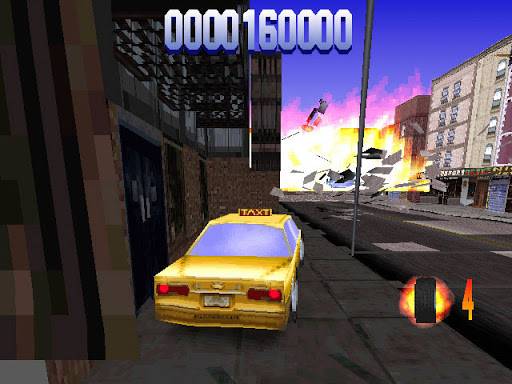
How did the team arrive at the decision to, essentially, make the project three games in one? What challenges did that present?
Die Hard Trilogy was one of the first PlayStation games - it went into development 18 months before the console was launched and no one on the team had any experience of developing 3D games. It was my suggestion to make it three games, which seemed reasonable at the time - with hindsight, it was an incredibly risky decision.
The intention was to write a single 3D render engine and use it for all three games. "How hard can it be?" we thought - but it turns out that it's very hard, and we ended up having three entirely different render and game engines. There was almost no code shared between the three titles in the end.
You spent a good chunk of your formative years programming your own games, essentially doing your own thing. Going from that, how was it working under Fox Interactive on a game based on a major movie franchise?
I was given total creative control, which was great. Fergus McGovern had a lot of faith in me and was happy to go along with most of my suggestions. In that sense it didn't feel different from previous games. In fact, compared to my coin-op conversions - Nemesis, Shinobi, Narc, and some others - it was liberating.
We had a number of false starts - the first version of Die Hard 3 (Die Hard with a Vengeance) was set in an unrecognisable version of New York, with all sorts of strange locations that we shoehorned in for gameplay reasons. Fox pushed back on that, and (rightly) wanted us to represent the movie better. Some early, untextured, locations can be seen in a Making of Die Hard Trilogy video that is on YouTube, from about one minute in.
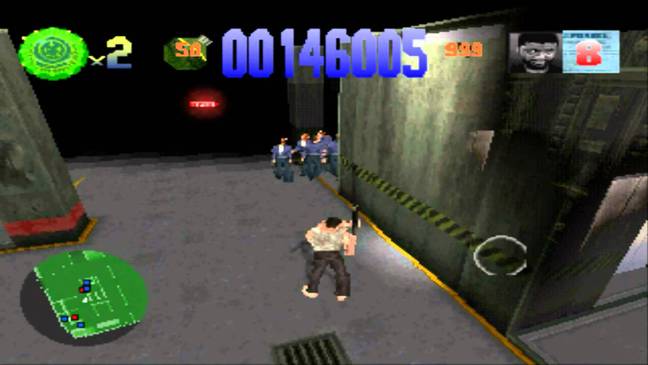
Were there any games of the time that inspired Die Hard Trilogy?
Yes! Die Hard, the first game on the collection, was inspired by Robotron: 2084; Die Hard 2: Die Harder by Virtua Cop; and Die Hard with a Vengeance by Crazy Taxi. I loved all three games. Fox bought us a Virtua Cop arcade machine for the office - it was awesome! Many hours were wasted playing it.
Did you expect the game to be such a hit with fans? A lot of movie tie-in games don't exactly have the best of reputations...
We didn't have much hope for the game! The whole development cycle is very stressful, working long hours with fast-approaching deadlines. The game was very scrappy, full of techniques and code tricks that only partly worked.
We thought it was quite fun to play, but were worried about how well it would stand up next to other PlayStation titles. As the PlayStation hadn't been launched, we had no benchmark at all. We came out at around the same time as Crash Bandicoot and the original Tomb Raider - both titles were amazing, and we thought that we didn't stand a chance against them.
On that point, why do you think movie tie-in games tend to suffer so badly?
Deadlines are the main problem with film tie-ins. We were trying to launch at the same time that Die Hard with a Vengeance was in theatres. It became obvious that there was simply no way we could hit that deadline, despite working crazy hours, so Fox moved the release to Christmas.
We worked 12- hours days for six days per week, for about three months to hit the deadline, and we only just managed it. When the team is exhausted and stressed, the overall quality drops, and as the deadline approaches features and nice touches get pushed aside, levels get removed, non-fatal bugs get ignored. It's a recipe for low-quality results.
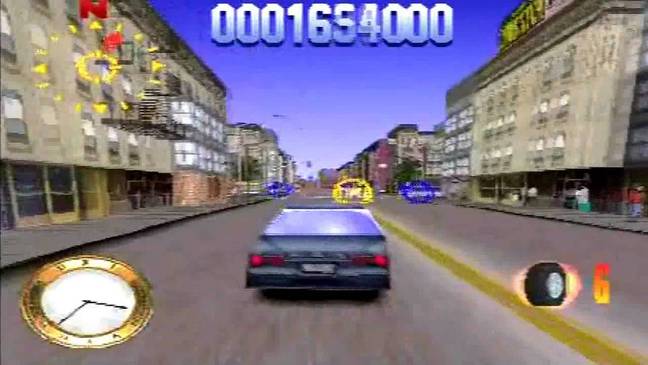
You're at Google as an engineering manager these days. Was it a conscious decision to leave game development, or was that just the direction you felt your career naturally going in?
It was a conscious decision, but one that I was sad to make. There were a number of factors that contributed to it. As development teams got bigger, the impact I had on the games I was working on reduced.
When I started, in the early 1980s, "bedroom" game developers were able to come up with a crazy idea, write the code, draw the graphics, make the sound effects. Everything was a bit clunky and low-quality, but you had total ownership of the game. This is no longer the case. The games industry is very aspirational for a lot of people, but this keeps the salaries low, and often - as an indirect result - companies can make bad hiring choices. And a couple of bad people on a team can easily sink a project.
The long hours and tight deadlines stopped being exciting and challenging - they kept me away from my family and I was in a constant state of fatigue. I was also growing tired of the lack of innovation and the derivative, risk-averse, nature of the titles I found myself working on - all the exciting stuff seemed to be happening in start-ups and mobile games.
I'd already run a start-up - a joint venture with Sony, making Terracon on PlayStation - for five years and didn't have the energy to go back into that space. Google offers me innovation and the chance to work with talented people, in a low-stress, no-deadlines environment. I absolutely miss making games, but I miss making them in the way we did on Die Hard Trilogy, just trying cool stuff and having a blast.
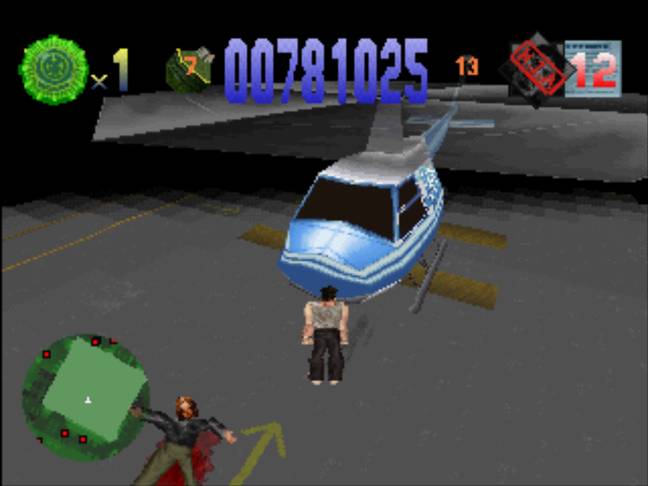
Remasters and remakes are obviously a big thing now - would you like to see Die Hard Trilogy remastered, maybe even be involved in its development?
I'd leave it alone! Part of its charm is the clunky, glitchy nature of it. It's a great big confused mess of a million ideas that we shoved together with our fingers crossed. I also wonder if it would be possible to get away with some of the stuff that's in the game - running over pedestrians and splattering blood on the windscreen no longer seems even slightly amusing to me.
Crunch is, as I'm sure you've seen, a topic that's been discussed a LOT in recent years. Is this something you ever experienced on any of the projects you worked on (gaming related or otherwise)? Is it a problem that you think can ever entirely be eliminated from video game development?
Every game I ever worked on had some form of crunch. The main impact is on quality. I've worked on a number of games that have been completely ruined because there wasn't time to fine-tune the difficulty, or finish all the features that the game's original design needed.
I'd go as far as to say that every terrible game out in the world is terrible because the developers ran out of time. Traditionally, games don't make much money. Every now and then there is a spectacular success story, but 95% of all games either lose money or only just break even. Because of this there is a financial incentive to get the game to market, to minimise the development cost and recoup it as soon as possible.
As long as this stays the same, the majority of games will never be given the time they need. Ideally you'd take a game all the way to beta, get feedback from everyone involved in it, fix their issues, and then push it to final. Only when it was finished would the marketing department swing into action, setting release dates and press coverage. But that makes no financial sense in today's climate.
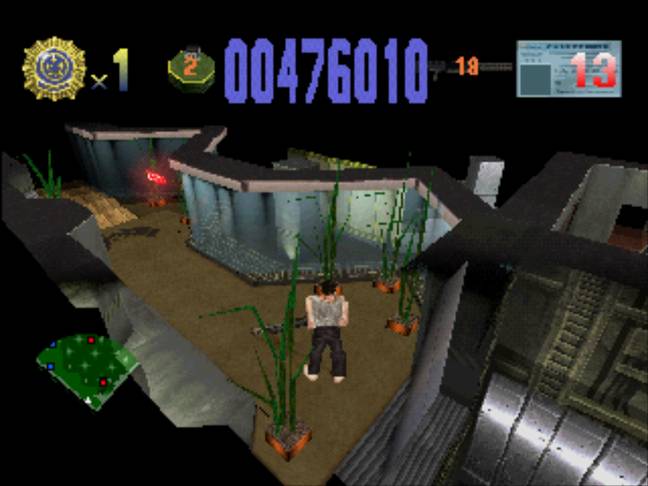
Of all the franchises you worked on, which - if any - would you most like to have another crack at?
Nemesis on the C64 (sold as Gradius in the US) was the first game I was hired to work on. Previously I'd just written my own stuff and sent it to publishers. I learned a great deal while developing it, but it didn't turn out that great. I would love to have the chance to rewrite it again today with all the knowledge and experience I have gained over the intervening 30 years. It would be great!
Do you game much these days? Are you looking forward to the next-gen consoles launching, or are you not that fussed?
I'm 100% retro! The thing that has excited me most recently is the arrival of tiny arcade games; a postage stamp-sized screen running a faithful version of arcade classics. I currently have Space Invaders, Dig-Dug, Frogger, Galaga, QBert and Pac Man sitting on my desk. They are just awesome! I'm hoping Williams get involved, I'd love a mini Defender and Robotron machine!
Topics: PlayStation






